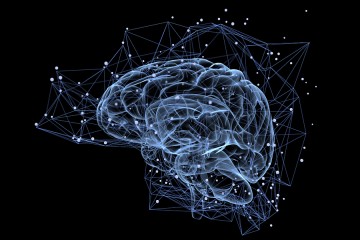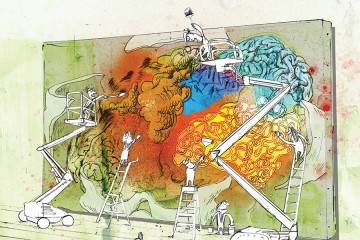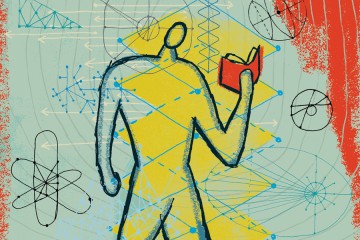For its symposium next week, the Science of Learning Institute has borrowed the famous tagline chanted at passengers of the London Underground—"Mind the Gap."
In this case, "the gap" refers to the gulfs that exist between different disciplines, research methods, and even individual viewpoints when it comes to understanding the fundamental science of learning.
Of course, the Johns Hopkins institute was launched five years ago this month to tackle this very challenge.
"Our key goal has been to bridge this gap by creating opportunities for innovative collaboration in science and practice," said Barbara Landau, who directs the cross-disciplinary effort. "We consider this essential for achieving a truly comprehensive, integrative understanding of learning."
The diverse range of experts who will take part in the institute's third biennial symposium Monday reflects this ongoing mission. The event brings together experts in cognitive science, neuroscience, education, and other fields to explore different perspectives on the cognitive and neural bases for learning and motivation.
One visitor from outside Hopkins is psychologist Daniel Simons of the University of Illinois, whose famous "Invisible Gorilla" study helped reveal just how much the human brain can miss when focused elsewhere.
Video credit: Daniel Simons
More recently, Simons found himself intrigued by the surging trend of "brain games" and whether they actually live up to their marketing claims. Though companies like Luminosity, Cogmed, and Nintendo's Brain Age have stirred interest in these brain-training and memory exercises as a way to boost overall cognition, Simons and his colleagues were the first to systematically review the scientific evidence on the topic.
"We undertook this massive project to see whether there is support for what the companies claim," Simons said.
Ultimately, their 2016 report found few broad, long-term benefits from these types of brain boosters.
At the Hopkins symposium, Simons—who was recently named editor of a new Association for Psychological Science journal—will explore the science belying some of these claims.
While Simons says "there's no real harm in playing the games if you enjoy them," things can get dangerous when large institutions—like school systems—buy into the idea without knowing the facts.
"People really want to believe these things will work, and the rosy media coverage doesn't help anyone evaluate these claims critically," he said.
The symposium will also feature experts from Johns Hopkins, including Patricia Janak, a Bloomberg Distinguished Professor of Psychological and Brain Sciences.
Janak will focus on the neural underpinnings of associative learning—specifically, how the dopamine response to external rewards, like food, supports fundamental adaptive behavior for humans and other organisms.
"I'll be highlighting recent work from our lab showing that dopamine neurons play a very specific role in outcome-driven learning, by attaching motivational significance to environmental sensory stimuli," Janak said.
Janak and Simons are among the six scholars presenting at Monday's symposium, which is organized into three pairs of talks. The symposium coincides with the fifth anniversary of the Science of Learning Institute, which launched in January 2013.
The institute, one of the most comprehensive of its kind, was forged with the goal of understanding learning from all levels of scientific inquiry, including brain and cognitive development, neurological and psychiatric diseases, and the effects of aging. Among its efforts since, the institute has funded a total of 33 collaborative grants on target research areas including memory and attention, language, and spatial cognition.
The Science of Learning symposium will take place on Monday, Jan. 22, from 8 a.m.–5:30 p.m. at Hodson Hall on JHU's Homewood campus. The event will also be broadcast live on the Johns Hopkins UStream Channel.
Posted in Science+Technology










